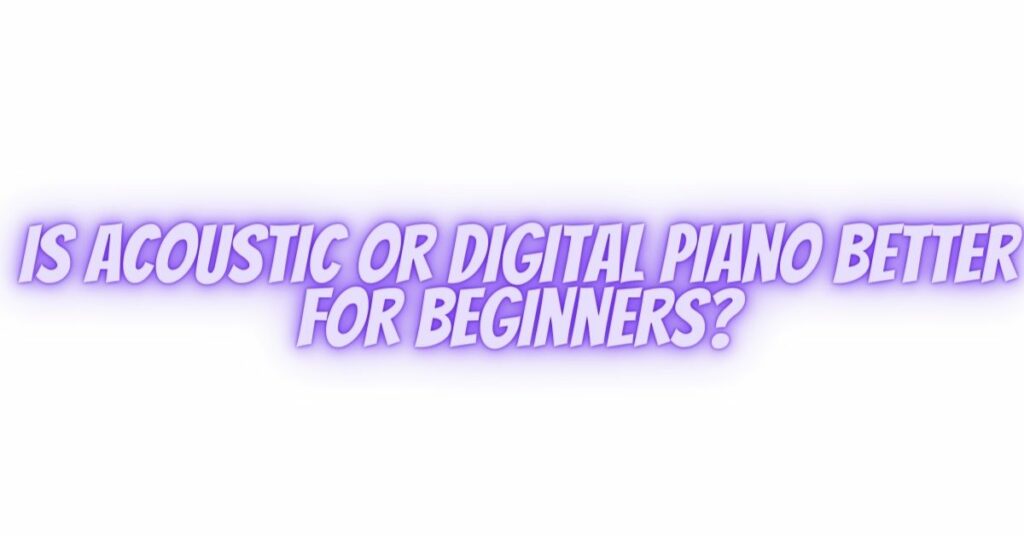Embarking on a musical journey with the piano is a thrilling endeavor that opens the door to a world of creative expression and musical exploration. As a beginner, one of the fundamental decisions you’ll face is whether to start your piano journey on an acoustic or digital piano. Both options have their advantages and considerations, and the choice largely depends on your preferences, needs, and circumstances. In this article, we will explore the pros and cons of both acoustic and digital pianos to help you make an informed decision as a beginner.
Acoustic Pianos for Beginners
Pros:
- Authentic Playing Experience: Acoustic pianos provide the most authentic and tactile playing experience. The feel of the keys and the responsive touch of an acoustic piano help beginners develop proper finger strength and technique.
- Rich and Resonant Sound: Acoustic pianos offer a rich, warm, and nuanced sound that many pianists find inspiring. The acoustic sound is considered the gold standard for pianos.
- No External Power Required: Acoustic pianos do not require electricity or external amplification, making them accessible for practice in any location.
Cons:
- Higher Cost: Acoustic pianos are generally more expensive than digital pianos, and the investment can be a significant consideration for beginners on a budget.
- Maintenance: Acoustic pianos require regular tuning and maintenance, which can incur additional costs and inconvenience.
- Size and Weight: Acoustic pianos are large, heavy instruments that may not be suitable for all living spaces. Moving them can be challenging.
Digital Pianos for Beginners
Pros:
- Affordability: Digital pianos are often more affordable than acoustic pianos, making them a practical choice for beginners.
- Variety of Sounds: Digital pianos offer a wide range of instrument sounds and effects, allowing beginners to explore different musical styles and genres.
- Headphone Option: Most digital pianos have headphone jacks, allowing beginners to practice without disturbing others.
- Portability: Digital pianos are typically more compact and lightweight, making them easier to move and fit into smaller living spaces.
- Built-in Learning Features: Many digital pianos come with built-in metronomes, recording capabilities, and educational features that can aid beginners in their learning process.
Cons:
- Less Authentic Key Action: While some digital pianos replicate the feel of acoustic piano keys with weighted or graded hammer action, the touch may not be as authentic as an acoustic piano.
- Sound Reproduction: Although digital pianos aim to replicate acoustic piano sound, some musicians find the sound less expressive and less resonant compared to an acoustic instrument.
- Dependency on Electricity: Digital pianos require an electrical power source or batteries, making them less suitable for outdoor or off-grid practice.
Conclusion
The choice between an acoustic and digital piano for beginners ultimately depends on your individual preferences and circumstances. Acoustic pianos offer an authentic playing experience and a rich, resonant sound but come with higher costs and maintenance requirements. Digital pianos are more affordable, portable, and versatile, with a variety of features that can aid in learning. They may not replicate the tactile experience and acoustic sound of a traditional piano, but they offer practicality and accessibility.
Consider your budget, living space, musical goals, and whether you prioritize touch and sound authenticity or practicality and versatility. Many beginners start with digital pianos and transition to acoustic pianos as they progress in their musical journey. Ultimately, the best piano for beginners is the one that inspires you to practice, learn, and enjoy the art of playing music.


